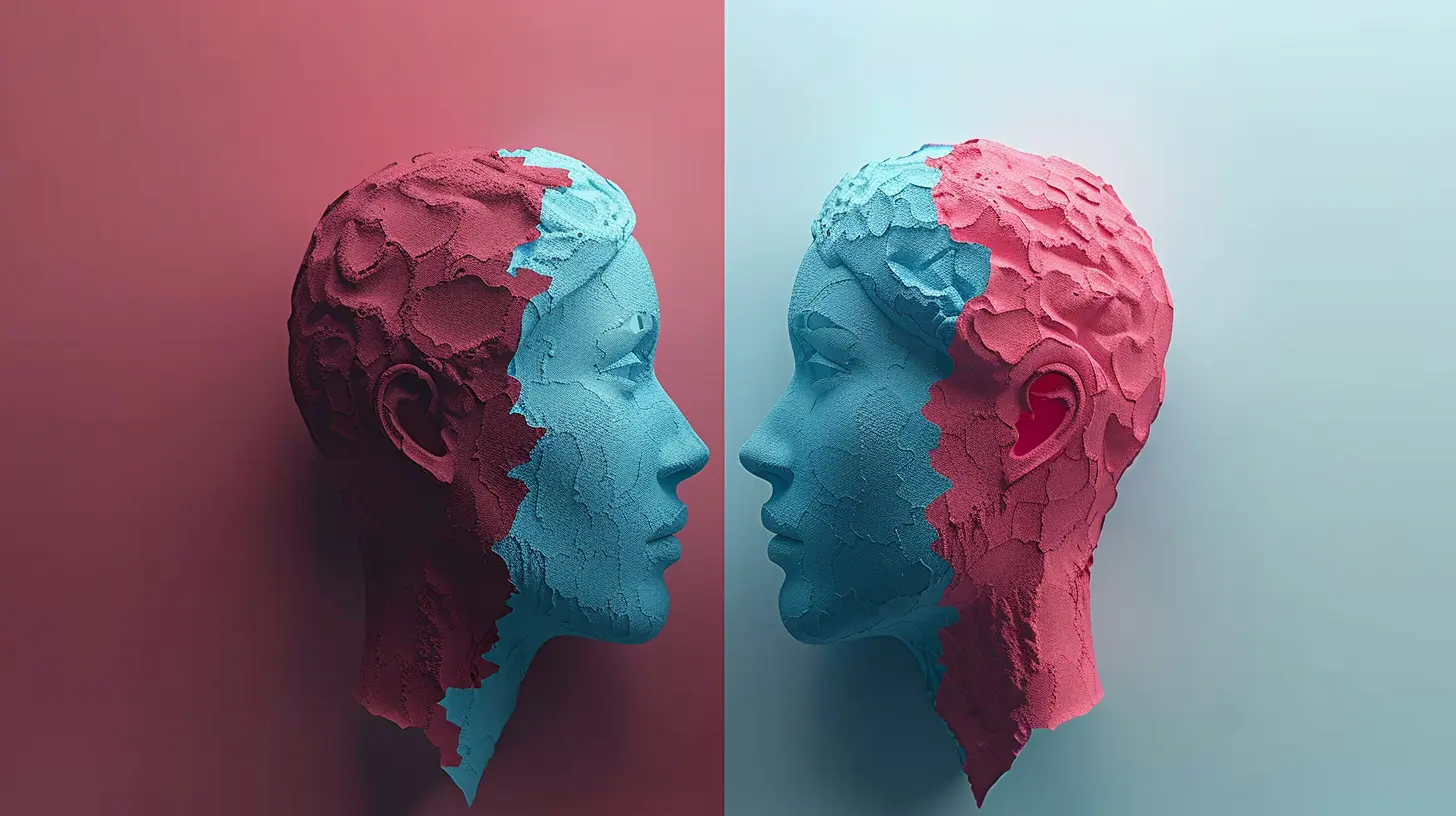How Empathy Shapes the Future of Healthcare
25 October 2025
Let’s get real for a minute—healthcare isn’t just about charts, IV drips, and long words that only doctors can pronounce. At its very core, healthcare is about people. And people? We’re complex. We come with emotions, fears, hopes, and stories. That’s where empathy swoops in like a superhero in scrubs. It’s the game-changer we don’t talk about nearly enough.
So, let’s unpack this together. How is empathy not just a “nice-to-have” but a “must-have” in modern healthcare? How can it revolutionize patient care, burn out less healthcare staff, and even make hospital visits a little less terrifying?
Grab your favorite cup of something warm—we’re diving into one of the most human aspects of medicine.
What Is Empathy, Really?
Let’s not confuse empathy with sympathy. Sympathy is like saying, “Oh, that must be tough.” Empathy, on the other hand, is pulling up a chair and saying, “I’m here with you. Let’s face this together.”In simple terms, empathy is the ability to understand and share someone else’s feelings. Not as a bystander, but as someone who emotionally tunes in. It’s walking a mile in their hospital-issued slippers, so to speak.
Empathy comes in three flavors:
- Cognitive empathy – understanding someone’s thoughts and perspective.
- Emotional empathy – feeling what the other person feels.
- Compassionate empathy – taking action to ease someone’s pain.
In healthcare, all three matter. But it’s that last one—compassion in action—that turns good care into great care.
Why Empathy Matters More Than Ever in Healthcare
Ever felt like just a number at the doctor’s office? Maybe your symptoms were brushed aside or you couldn’t even make eye contact with the doctor. That’s what empathy (or the lack of it) feels like in a clinical setting.Now imagine this: your doctor sits down, looks you in the eye, and genuinely listens. You feel heard, validated, and safer already—even before treatment begins. That’s the magic of empathy. But it’s not just about warm fuzzies. It changes real-world outcomes.
Trust Builds Faster Than You Think
When patients feel understood, they build trust. And trust? It’s the glue that holds the patient-provider relationship together. It makes patients more likely to follow advice, take their medication, and come back for checkups.Better Communication = Fewer Mistakes
Empathetic communication reduces misunderstanding. It encourages patients to be honest about their symptoms, even the embarrassing ones. That openness can lead to quicker diagnoses and fewer medical errors.Empathy Soothes Anxiety
A calm voice, a warm tone, or even just a reassuring nod can lower a patient’s stress levels instantly. And when patients are less anxious, they’re more cooperative, less reactive, and open to treatment.
Empathy and the Patient Experience: A 360° Shift
Let’s face it—going to the hospital isn’t on anyone’s bucket list. But empathy can take a cold, clinical experience and turn it into a moment of human connection.The Impact on Mental Health
Chronic illness, surgery, or even a trip to the ER can mess with your mental health. An empathetic provider acknowledges emotional struggles alongside physical symptoms. That validation alone can be therapy.It Feels Personal, Because It Is Personal
When a nurse takes the time to ask about your family or a doctor remembers your favorite hobby, that’s empathy at work. Patients feel like more than just “the kidney stone in Room 6.”Tailored Treatments Work Better
Empathy helps providers understand what matters most to the patient. That leads to personalized treatments that align with the patient’s values and lifestyle. A custom plan? Now we’re talking.
Empathy Is a Lifeline for Healthcare Workers Too
Let’s not forget the flip side. It’s not just patients who benefit. Empathy can be the lifeline healthcare workers need in a system that’s stretched thin.Combating Burnout
Healthcare workers face long hours, tough decisions, and emotional exhaustion. When hospitals encourage empathy—not just toward patients but among staff—it creates a supportive environment. That kind of culture can reduce burnout and improve job satisfaction.Strengthening Team Dynamics
Empathy promotes better teamwork. It helps doctors, nurses, and other professionals understand each other’s challenges and work together more compassionately. And smoother teams mean better care.Empathy Meets Technology: Can AI Be Compassionate?
Here’s a curveball—what about empathy in a tech-driven age? With telehealth, chatbots, and AI in the mix, can compassion survive?Humanizing Digital Interactions
Empathy doesn’t have to vanish just because there’s a screen involved. Telemedicine platforms can train doctors to look into the camera, speak kindly, and pause to listen. That’s digital empathy.Emotion AI Is On the Rise
Believe it or not, some AI tools can detect emotions based on voice tone or facial expressions. While robots don’t “feel” in the human sense, they can be programmed to respond in ways that mimic empathy—like a caring tone or thoughtful message.But let’s be real: no matter how advanced tech gets, nothing replaces a human touch. Machines can assist, but empathy? That’s still our superpower.
Empathy in Medical Education: Shape the Healers of Tomorrow
Great doctors aren’t just good at diagnostics—they’re good with people. That’s why medical schools are pivoting to teach empathy alongside anatomy.Roleplay and Storytelling Go a Long Way
Some schools use roleplaying exercises, where students take on the role of patients. Walking in someone else’s shoes—even pretend ones—builds emotional insight.And guess what? Storytelling helps too. Patient narratives give future doctors a glimpse into the lived experience of illness, not just the science behind it.
Reflection = Retention
Medical students also keep journals to reflect on patient interactions. These reflections deepen their understanding and remind them why they chose this path in the first place.The Challenges of Practicing Empathy
Okay, let’s not sugarcoat it. Empathy isn’t always easy to practice, especially when time is tight and emotions run high.Time Constraints
Doctors often have 10 minutes or less per patient. In that rush, empathy can feel like a luxury. But even a minute of genuine connection can make a difference. A sincere “How are you really feeling today?” can go a long way.Emotional Fatigue
Some healthcare workers build emotional walls as a defense mechanism. It’s understandable, but over time, it creates distance. Empathy requires emotional energy—but like a muscle, the more it’s used, the stronger it gets.Systemic Pressures
Let’s be honest—the system isn’t always built for empathy. Insurance red tape, staff shortages, and mountains of paperwork don’t exactly scream “compassion.” That’s why empathy needs to be a top-down priority, not just a buzzword.How Hospitals and Clinics Can Prioritize Empathy
So, how do we build empathy into the bones of healthcare systems?Train, Then Train Some More
Regular empathy training should be as standard as CPR training. Workshops, role-play, and shadowing programs can help healthcare workers stay emotionally agile.Measure What Matters
Some clinics are now measuring patient satisfaction, not just outcomes. Tracking things like “Did your doctor listen to you?” sends a clear message: empathy counts.Reward Empathy in Action
When a nurse goes the extra mile or a support staff member shows unusual kindness, don’t let it go unnoticed. Celebrate it. That kind of culture spreads.The Future of Healthcare Is Human
Here’s the truth: medicine is evolving fast. We’ve got cutting-edge equipment, AI diagnostics, and tech that blows our minds. But no matter how advanced we get, the heart of healthcare will always be human connection. Empathy isn’t some soft skill—it’s the foundation of healing.Imagine a future where your doctor doesn’t just cure your illness but truly listens, acknowledges your fears, and treats you like a person first. That future isn’t a fantasy. It’s possible. And it starts with empathy—one patient, one provider, one moment at a time.
Final Thoughts: The Ripple Effect of Empathy
Think of empathy like tossing a pebble into a pond. The ripples spread far and wide. A kind word at check-in, a warm blanket without asking, a doctor who remembers your name—it all adds up. It changes the atmosphere.So whether you’re a patient, nurse, doctor, or caregiver, remember this: empathy isn’t just about being nice. It's about being real. It’s about seeing each other—not as cases or conditions—but as people.
And that? That’s what will shape the future of healthcare.
all images in this post were generated using AI tools
Category:
EmpathyAuthor:

Alexandra Butler
Discussion
rate this article
1 comments
Thane Whitley
Empathy in healthcare: the secret ingredient to healing and happy patients! 😊❤️
October 29, 2025 at 4:57 AM

Alexandra Butler
Absolutely! Empathy not only fosters trust but also enhances patient outcomes, making it essential for a transformative healthcare experience. Thank you for your insight! 😊❤️


